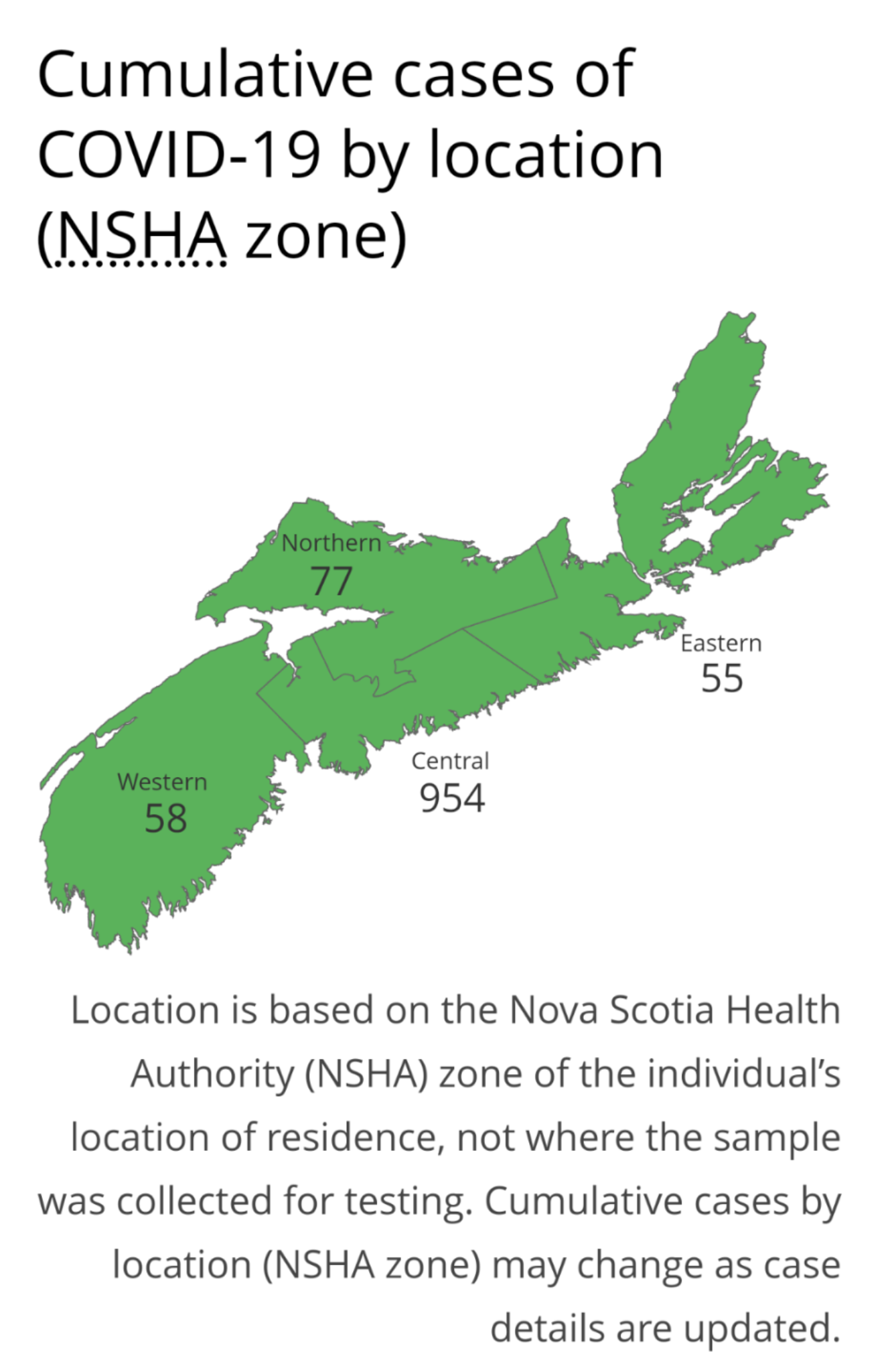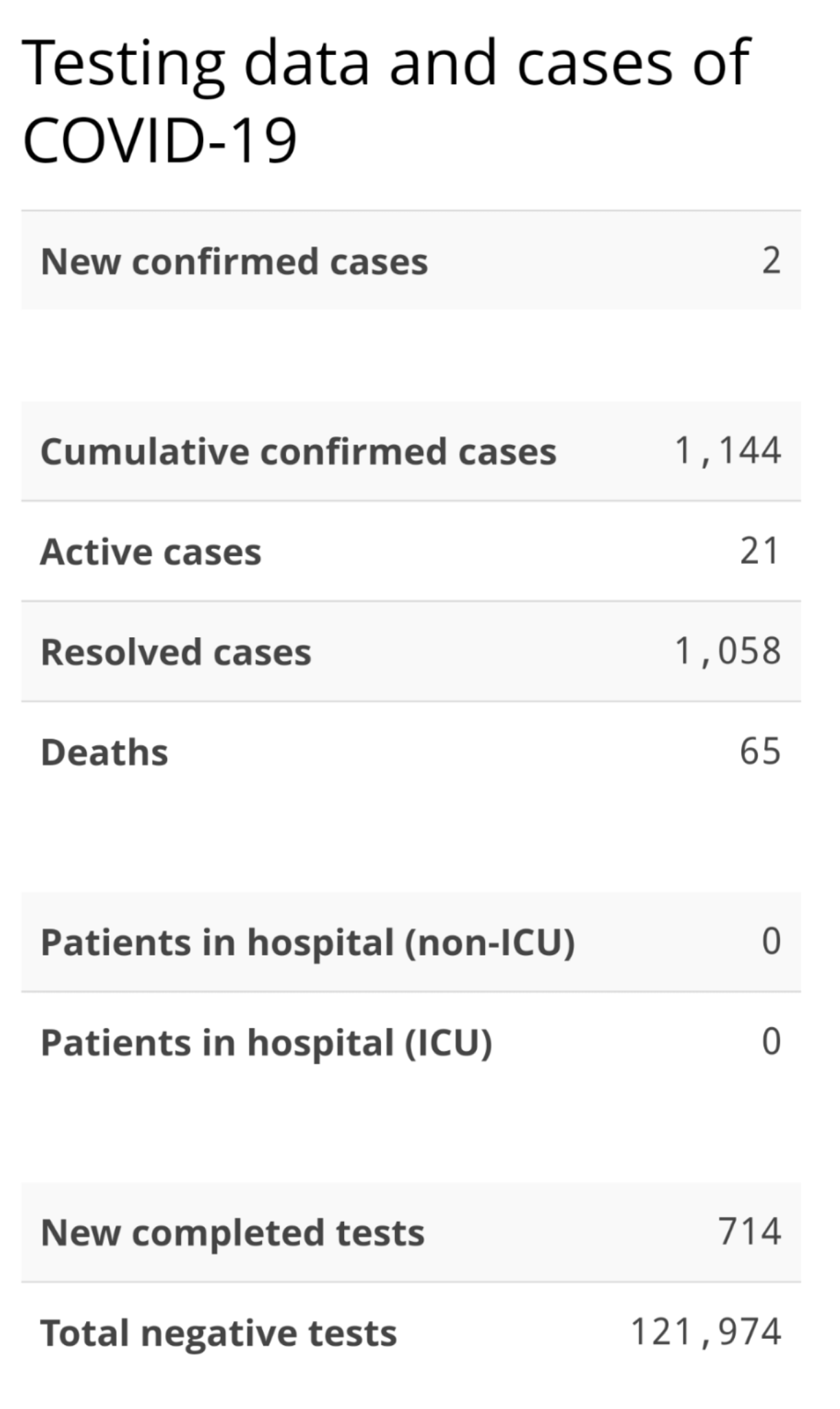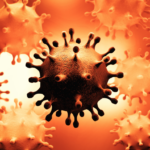As of today, Nov. 15, Nova Scotia has 21 active cases of COVID-19. Two new cases were identified Saturday, Nov. 14.
The new cases are in the Central Zone. Both are connected to previously reported cases, including one linked to the Clayton Park area. The cases are still under investigation.
“As we continue seeing cases increase, I am growing more concerned that people are going about their lives as if we are not still in the midst of a pandemic,” said Premier Stephen McNeil. “I know the vast majority of Nova Scotians are following public health guidelines to keep each other safe. But for those who are not, you are not only putting your own health in jeopardy, but also the health of others. We all have to act responsibly to keep the virus from spreading.”
Nova Scotia Health Authority’s labs completed 714 Nova Scotia tests on Nov. 14.
“As we’ve seen in other provinces, cases of COVID-19 can spike in the blink of an eye,” said Dr. Robert Strang, Nova Scotia’s chief medical officer of health. “We cannot become complacent in Nova Scotia. Please continue following the protocols and limit your number of close social contacts and social activities.”


To date, Nova Scotia has 121,974 negative test results, 1,144 positive COVID-19 cases and 65 deaths. No one is currently in hospital. Cases range in age from under 10 to over 90. One thousand and fifty-eight cases are now resolved. Cases have been identified in all parts of the province. Cumulative cases by zone may change as data is updated in Panorama.
Visit https://covid-self-assessment.novascotia.ca/ to do a self-assessment if in the past 48 hours you have had or you are currently experiencing:
— fever (i.e. chills/sweats) or cough (new or worsening)
Or:
Two or more of the following symptoms (new or worsening):
— sore throat
— runny nose/ nasal congestion
— headache
— shortness of breath
Call 811 if you cannot access the online self-assessment or wish to speak with a nurse about your symptoms.
When a new case of COVID-19 is confirmed, public health works to identify and test people who may have come in close contact with that person. Those individuals who have been confirmed are being directed to self-isolate at home, away from the public, for 14 days.
Anyone who has travelled outside of Atlantic Canada must self-isolate for 14 days. As always, any Nova Scotian who develops symptoms of acute respiratory illness should limit their contact with others until they feel better.
It remains important for Nova Scotians to strictly adhere to the public health order and directives — practise good hand washing and other hygiene steps, maintain a physical distance when and where required. Wearing a non-medical mask is mandatory in most indoor public places.
As of July 3, interprovincial travel within Nova Scotia, New Brunswick, Prince Edward Island and Newfoundland and Labrador, without the requirement to self-isolate for permanent Atlantic Canadian residents, is permitted. All public health directives of each province must be followed. Under Nova Scotia’s Health Protection Act order, visitors from other Canadian provinces and territories must self-isolate for 14 days. Other visitors from outside the Atlantic provinces who have self-isolated for 14 days in another Atlantic province may travel to Nova Scotia without self-isolating again.
Source: Release #notw



